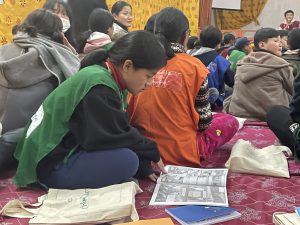December eNews 2021
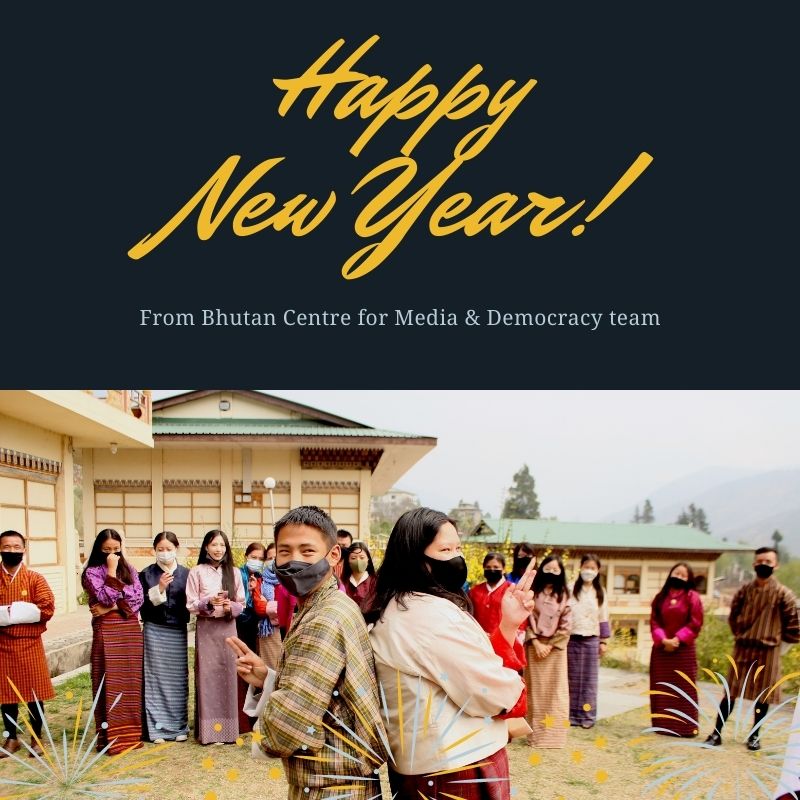
Expanding the Base of Media-literate Citizens
A total of 41 participants (teachers, youth, members of CSOs) were engaged in a 3-day training on Media & Democracy Literacy. The training covered topics on using different tools to analyse the credibility of information to encourage safe use of social media and promote critical thinking when consuming information.
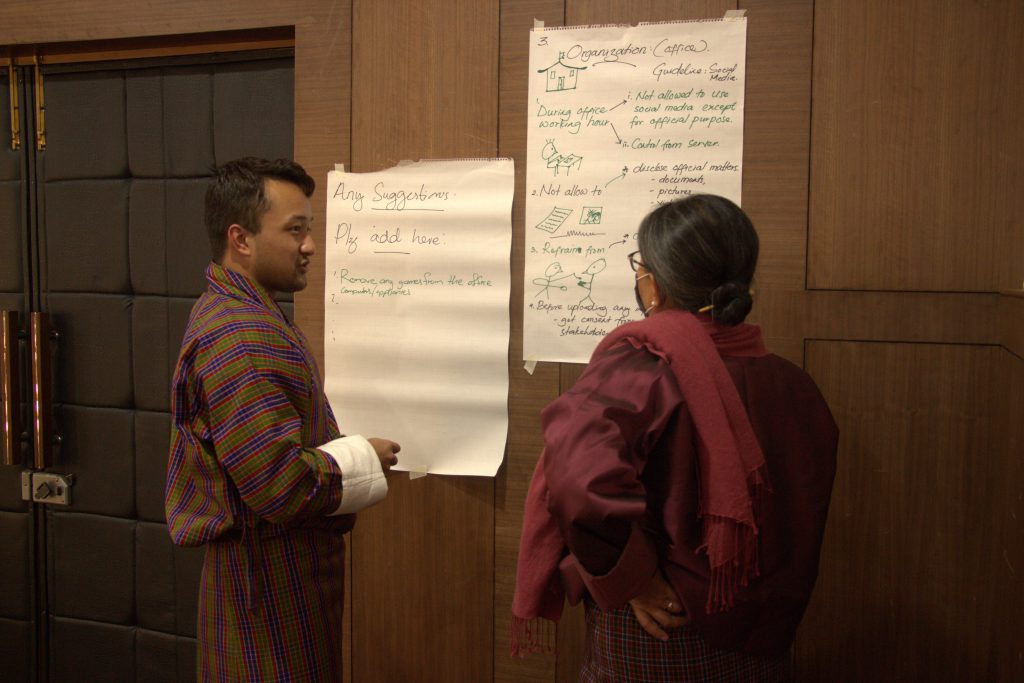
An extensive discussion on the influence of media and children brought out the complex dynamics of a growing internet generation. Teachers called for the need for social media policy and regulations to ensure the safe use of social media and reduce the risk of online threats. The critical role of media literacy among caregivers such as parents and schools in advocating for responsible use of the internet and its applications was also agreed on by the participants.
“I look forward to working on designing a social media guideline for my class,” expressed Jyotsana, a teacher at Yangchenphug Higher Secondary School. Participants also worked in groups to design a lesson plan, to encourage them to share the learnings with their respective organisations and schools.
We thank The Asia Foundation for supporting this project.
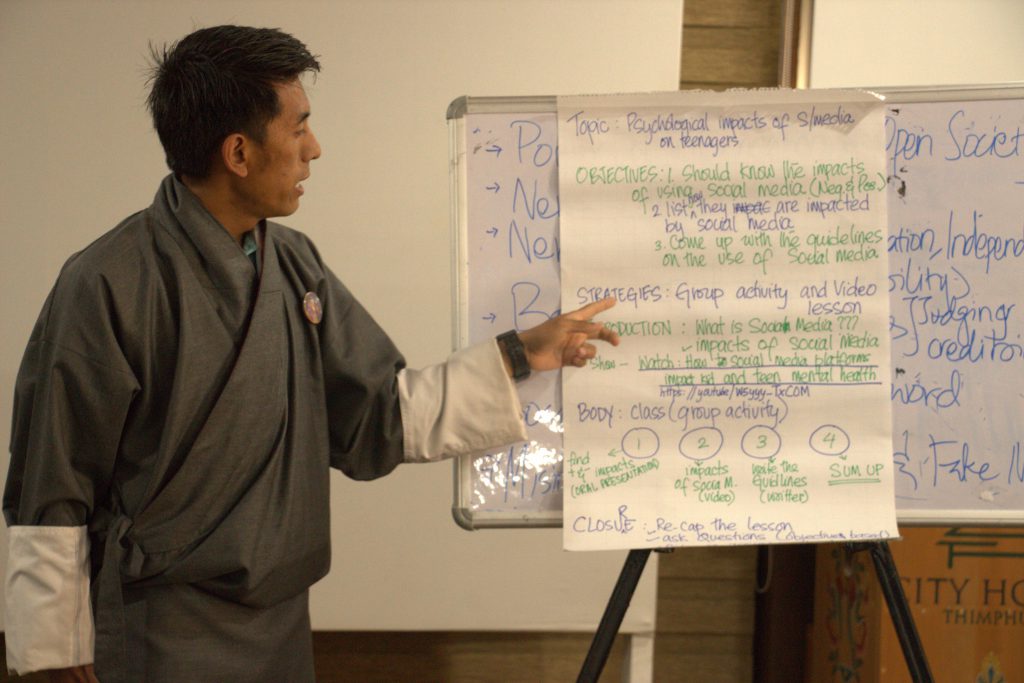
Keeping the oral storytelling culture alive in the Digital Age
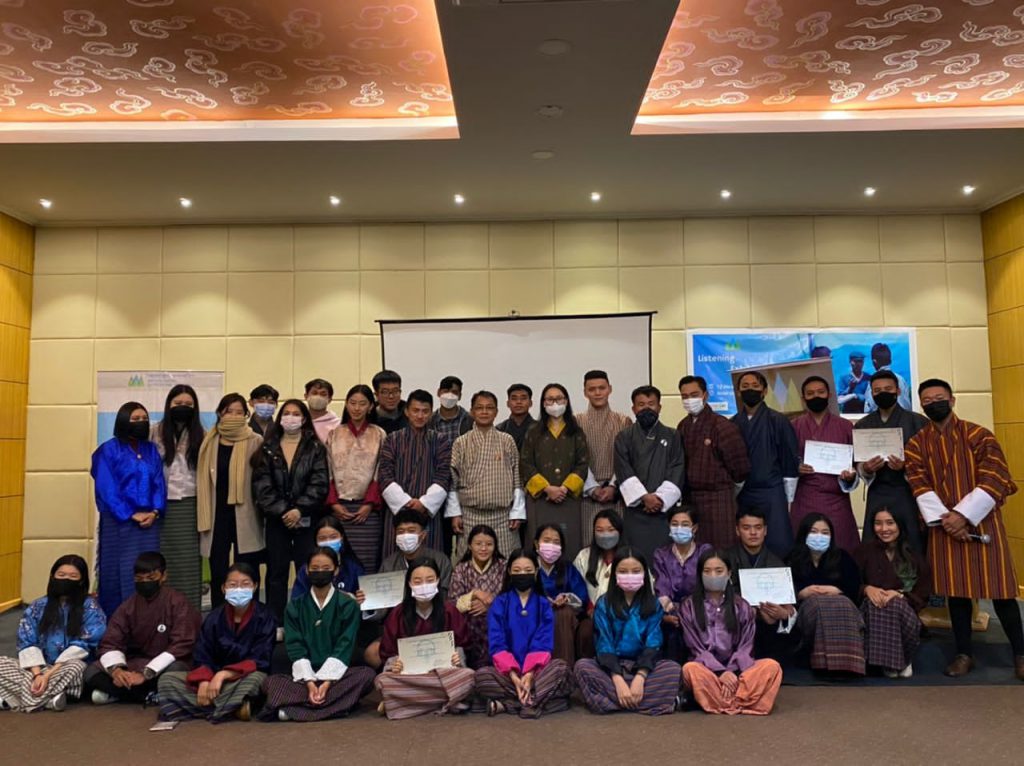
At the end of the five-day training, the participants presented their stories on four different themes: Mental health, Child sexual abuse, LGBTIQ and Entrepreneurship. As the child sexual abuse story was being presented at the listening exhibition on the final day, the Executive Director of Organization for Youth Empowerment (OYE) had this to say: “The stories were really moving and I am sure that like me, tears must have been rolling down the cheeks of some of the other listeners in the audience as well”.
The other podcasts delved into the relationship component of mental health, the positive stories of LBGTIQ individuals and an entrepreneur’s journey as a means to tackle unemployment. The closing exhibition was attended by 40 people from CSO, educators, youths, media houses and high schools. In addition to the participants presenting their work, the exhibition also offers the opportunity to take the conversation beyond the podcasts to a community of learners who engage with each other and deepen their understanding of the social issues presented.

The 17 participants who took part in this training were trained on the basics of audio recording and editing, storytelling, investigating social issues and ultimately, combining all elements to produce their final products.
We thank CISU for supporting this training and our Media Lab.
Amplifying Impact of our Resources Among Children
Jurwa: Changing Times (Part 1 and 2) – are graphic novels based on a radio soap series that BCMD created to reflect the stories of a cross-section of people who were at the cusp of democratic change. The novels follow the difficulties and triumphs of Sangay Penjor, a young civil servant, as he aspires to stand for a seat in the parliament.
“I finished both Jurwa novels in one day. I liked the book because it followed the story of a youth who wanted to do something that usually adults are seen doing. I learnt that women and youth should also stand for elections and that they are equally qualified to become leaders of our country”, shared Tashi eagerly.
Tashi is a 12-year-old student of Dechencholing Higher Secondary School who is currently attending Camp Rural-Urban-Friendship (RUF) in Trongsa. BCMD donated 130 copies of the Jurwa novels to Camp RUF which is attended annually by around 100 children from all over Bhutan.
Suja Dzaw Conversation on Bhutanese Youth – Their Aspirations, Concerns and Mandate
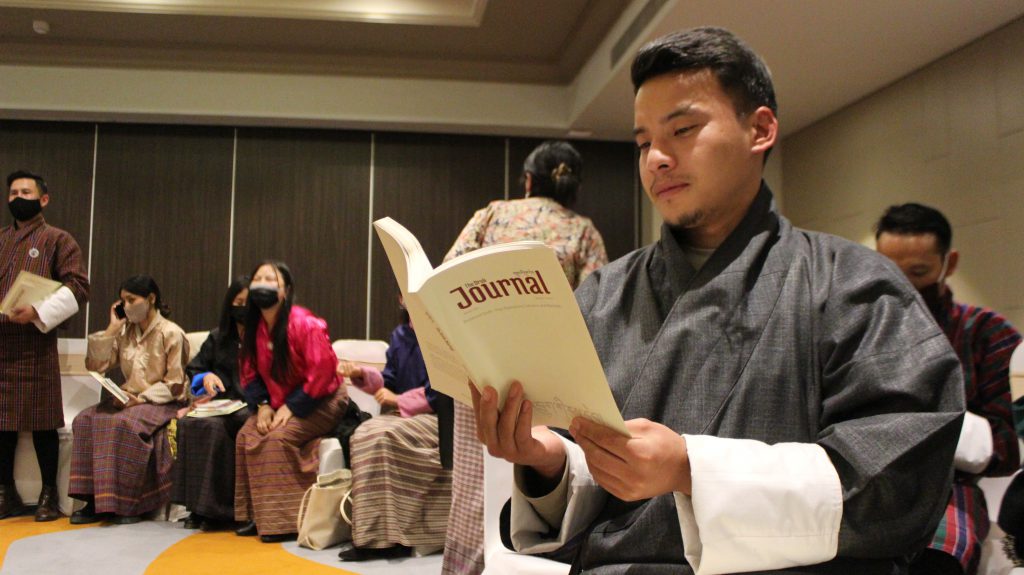
Putting the youth at the heart of our discussion, 46 teachers, youths and members of civil society joined the Suja Dzaw conversation to talk about the role of youths in tackling climate change, children in difficult circumstances and what our youths learn. Tashi Dema outlined the different challenges that youth faces such as prostitution, conflict with the law, addiction to alcohol and drugs, mental health issues and the need to translate the National Youth Policy into action. She emphasised the important role teachers can play in identifying and helping youths going through difficult times.
Dr Meenakshi Rai expressed her concerns about the negligence of children in difficult circumstances, the prevalence of child sexual abuse, and the need for advocacy campaigns at all levels. On making the issue of climate change relevant to youths, Namgay Choden shared the need to make the interconnection between the issue and economic opportunities for youths and inter-generational allyship an important strategy to mitigate climate change.
To ensure wider reach of the previous Durk Journal Conversation, it has been uploaded on our YouTube. We would like to thank The Asia Foundation, UNICEF and Bhutan Foundation for their support.
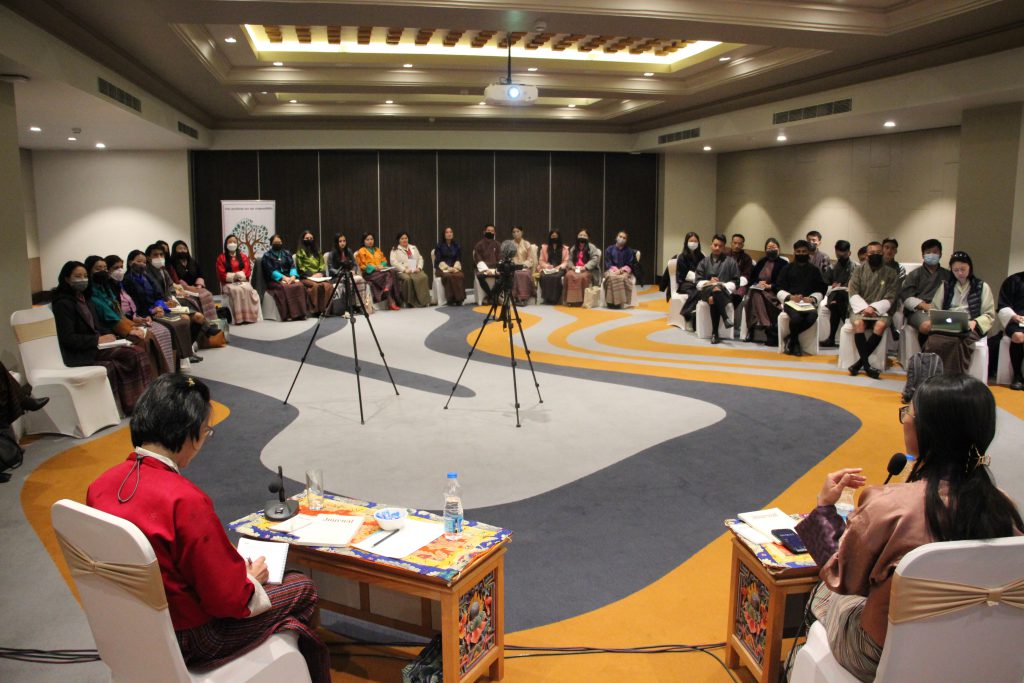
Civil Society Meet
Fostering a sense of community and solidarity, civil society organisations (CSOs) met at Punakha for a 2-day Meet to welcome newly registered CSOs and to remind ourselves of the calling as a fraternity.
The Executive Director of BCMD led a session that made the members reflect on who we are as a civil society, the qualities that define us and the purpose of our existence. Civil society actors identify themselves as “defenders of democracy”, “compassionate caregivers of all sentient beings”, “facilitators of socio-economic development”, and “promoters of positive transformation” and so on.
The members reflected on common misconceptions about civil society in the country and the need to proactively engage and sensitise the media as they wield the power of shaping public perception.
Upcoming: MDL for Teachers
Recognizing the importance of teachers and their influence in society, BCMD will train 35 teachers from two districts of Thimphu and Tsirang from 5th January – 7th January 2022 in Punakha. BCMD will provide teachers with Media and Democracy literacy (MDL) and facilitation training. Post-training, BCMD intends to integrate MDL into their education system by helping them set up media clubs in their respective schools.
Similar MDL resources for people with disabilities (PWD) have been developed by BCMD. On the last day of the training, the MDL resources (video with sign language for the deaf and assistive reading device for the blind) will be launched.


